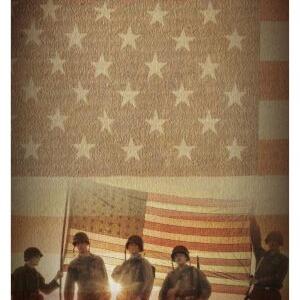In January 1990, I sat in the basement of a university dormitory in East Berlin, surrounded by students who had just toppled East Germanyňňň˝ĘÓƵ™s repressive communist government.
The Berlin Wall had fallen two months earlier. Freedom was on the march throughout Eastern Europe ňňň˝ĘÓƵ” and would soon spread to the Soviet republics. We were listening and singing along to Tracy Chapmanňňň˝ĘÓƵ™s ňňň˝ĘÓƵśTalkinňňň˝ĘÓƵ™ Bout a Revolution,ňňň˝ĘÓƵť which had become the studentsňňň˝ĘÓƵ™ anthem.
Like Bruce Springsteenňňň˝ĘÓƵ™s ňňň˝ĘÓƵśBorn in the USAňňň˝ĘÓƵť ňňň˝ĘÓƵ” another song co-opted for political purposes ňňň˝ĘÓƵ” the words of Chapmanňňň˝ĘÓƵ™s song had little to do with the upheaval at the time. But she became one of the symbols of the youthful revolutions of 1989.
Watching the college campus protests this spring, Iňňň˝ĘÓƵ™ve often thought back to 1989. The differences are astounding. The students then had clear, peaceful and noble aims: to restore freedom to those living under communist regimes.
And they understood that they risked serious consequences. Just a few months earlier, in Beijingňňň˝ĘÓƵ™s Tiananmen Square, Chinaňňň˝ĘÓƵ™s communist regime had slaughtered as many as 3,000 peaceful protesters seeking the same freedoms.
The right ňňň˝ĘÓƵśpeaceably to assembleňňň˝ĘÓƵť and to ňňň˝ĘÓƵśpetition the governmentňňň˝ĘÓƵť are foundational American principles embodied in the Constitutionňňň˝ĘÓƵ™s First Amendment. This amendment allows various forms of debate and discussion, including peaceful protest, to resolve disputes. But sometimes, protest alone is not enough.
In June 1776, Thomas Jefferson was not drafting a petition; he was drafting the Declaration of Independence ňňň˝ĘÓƵ” and, with it, a revolution.
Following Jefferson, had the East European revolutionaries of 1989 been American colonists 250 years earlier, they may have declared that they were making an ňňň˝ĘÓƵśappeal to heaven.ňňň˝ĘÓƵť
The phrase has recently appeared in the news, with stories about Supreme Court Justice Samuel Alito flying an ňňň˝ĘÓƵśAppeal to Heavenňňň˝ĘÓƵť flag at his beach home. This followed an earlier story about the justiceňňň˝ĘÓƵ™s wife briefly flying the ňňň˝ĘÓƵśStars and Stripesňňň˝ĘÓƵť upside-down outside their Virginia residence.
Whatňňň˝ĘÓƵ™s all the fuss? The flag flown at the Alito beach house depicts a tall, white pine tree beneath the words ňňň˝ĘÓƵśAPPEAL TO HEAVEN.ňňň˝ĘÓƵť During the American Revolution, it was the official flag of the Massachusetts navy.
The words ňňň˝ĘÓƵśappeal to heavenňňň˝ĘÓƵť refer to a passage from John Lockeňňň˝ĘÓƵ™s ňňň˝ĘÓƵśSecond Treatise on Government,ňňň˝ĘÓƵť a key text for the American revolutionaries. It addressed a tricky problem: What do you do when protesting alone fails to produce justice? For Locke, the answer was to ňňň˝ĘÓƵśappeal to heaven.ňňň˝ĘÓƵť
Locke didnňňň˝ĘÓƵ™t mean to pray but rather to fight, assuming that Heaven would favorňňň˝ĘÓƵ” and grant victory to ňňň˝ĘÓƵ” the just.
When you move from protesting to revolution, you are ňňň˝ĘÓƵśappealing to heaven,ňňň˝ĘÓƵť believing that might will make right.
This points to another difference in todayňňň˝ĘÓƵ™s protesters. In an ňňň˝ĘÓƵśappeal to heaven,ňňň˝ĘÓƵť revolutionaries realize they might lose. Indeed, they might lose their lives.
Those who signed the Declaration of Independence realized this, but ňňň˝ĘÓƵświth a firm reliance on the protection of divine Providence,ňňň˝ĘÓƵť concluded their Declaration by mutually pledging ňňň˝ĘÓƵśto each other ňňň˝ĘÓƵ¦ (their) Lives, Fortunes, and sacred Honor.ňňň˝ĘÓƵť In other words, they understood the huge risks they were taking and were ready to suffer the consequences.
Contrast this to the campus protesters, many of whom sought anonymity by hiding their faces, some demanded that food be delivered to them, and almost all seemed to think their actions should be without consequence.
ňňň˝ĘÓƵ the United States struggles to find common ground and a common purpose, it is ironic that the symbols used 250 years ago to unite the American colonists in their struggle have become a source of disunity. Polls tell us most Americans would prefer it otherwise.
I was reminded of Tracy Chapman again during this yearňňň˝ĘÓƵ™s Grammy Awards.
Another great Tracy Chapman song is ňňň˝ĘÓƵśFast Car.ňňň˝ĘÓƵť Country singer Luke Combs has been gaining attention for his version of the song. But along with the success came criticism because he allegedly had ňňň˝ĘÓƵśappropriatedňňň˝ĘÓƵť the work of a gay Black woman.
Rather than jumping on the ňňň˝ĘÓƵśappropriationňňň˝ĘÓƵť bandwagon, Chapman chose instead to come out of retirement and sing ňňň˝ĘÓƵśFast Carňňň˝ĘÓƵť as a duet with Combs, a sign of unity. The audience at the Grammys cheered. And heaven smiled.












